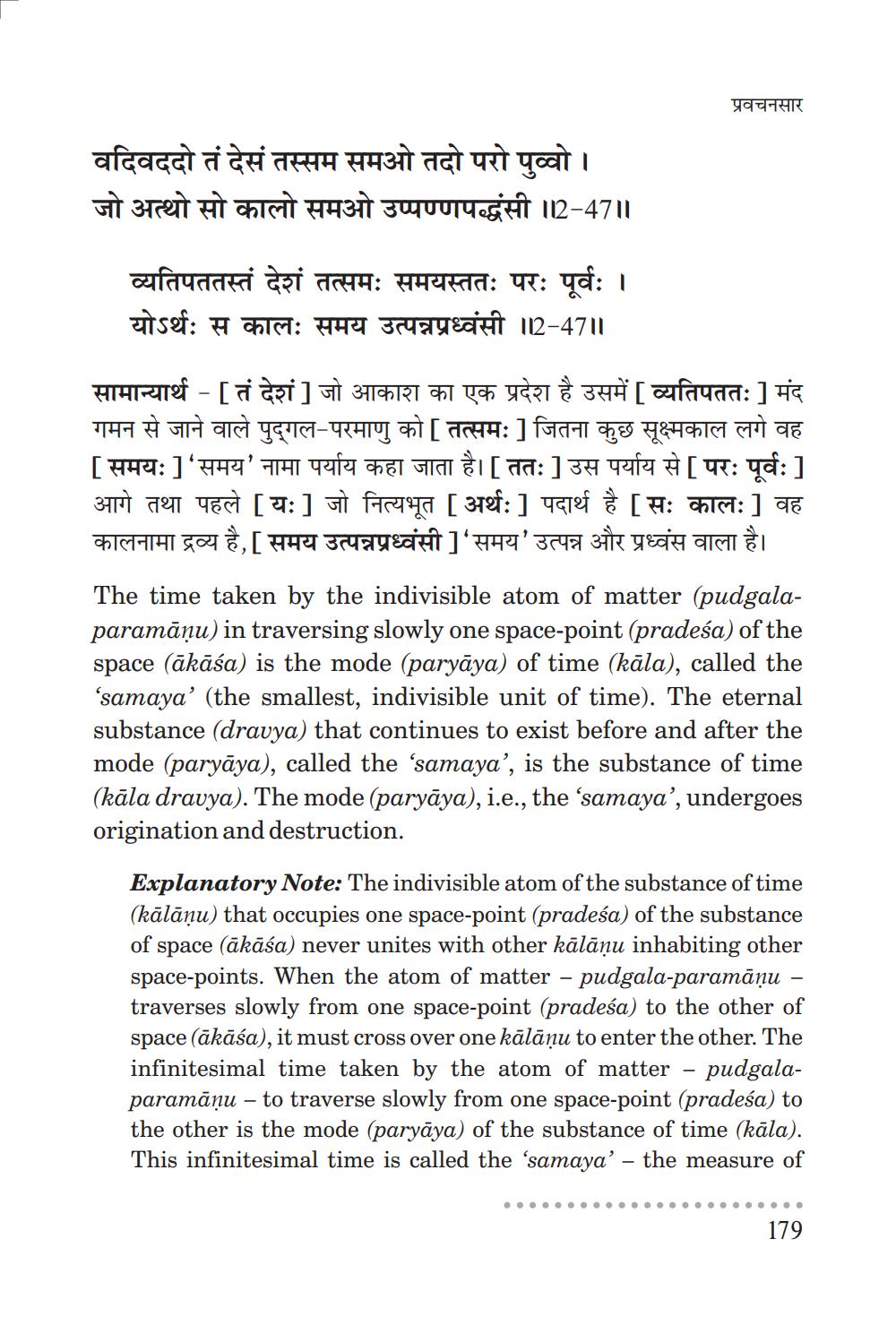________________
प्रवचनसार
वदिवददो तं देसं तस्सम समओ तदो परो पुव्वो। जो अत्थो सो कालो समओ उप्पण्णपद्धंसी 2-47॥
व्यतिपततस्तं देशं तत्समः समयस्ततः परः पूर्वः । योऽर्थः स कालः समय उत्पन्नप्रध्वंसी ॥2-47॥
सामान्यार्थ - [तं देशं] जो आकाश का एक प्रदेश है उसमें [व्यतिपततः] मंद गमन से जाने वाले पुद्गल-परमाणु को [ तत्समः ] जितना कुछ सूक्ष्मकाल लगे वह [समयः ] 'समय' नामा पर्याय कहा जाता है। [ ततः ] उस पर्याय से [ परः पूर्वः] आगे तथा पहले [यः] जो नित्यभूत [अर्थः] पदार्थ है [सः कालः] वह कालनामा द्रव्य है, [समय उत्पन्नप्रध्वंसी ] 'समय' उत्पन्न और प्रध्वंस वाला है।
The time taken by the indivisible atom of matter (pudgalaparamāņu) in traversing slowly one space-point (pradeśa) of the space (ākāśa) is the mode (paryāya) of time (kāla), called the 'samaya' (the smallest, indivisible unit of time). The eternal substance (dravya) that continues to exist before and after the
mode (paryāya), called the 'samaya', is the substance of time (kāla dravya). The mode (paryāya), i.e., the 'samaya’, undergoes origination and destruction.
Explanatory Note: The indivisible atom of the substance of time (kālāņu) that occupies one space-point (pradeśa) of the substance of space (ākāśa) never unites with other kālāņu inhabiting other space-points. When the atom of matter - pudgala-paramāņu - traverses slowly from one space-point (pradeśa) to the other of space (ākāśa), it must cross over one kālāņu to enter the other. The infinitesimal time taken by the atom of matter - pudgalaparamāņu – to traverse slowly from one space-point (pradeśa) to the other is the mode (paryāya) of the substance of time (kāla). This infinitesimal time is called the 'samaya' - the measure of
179




